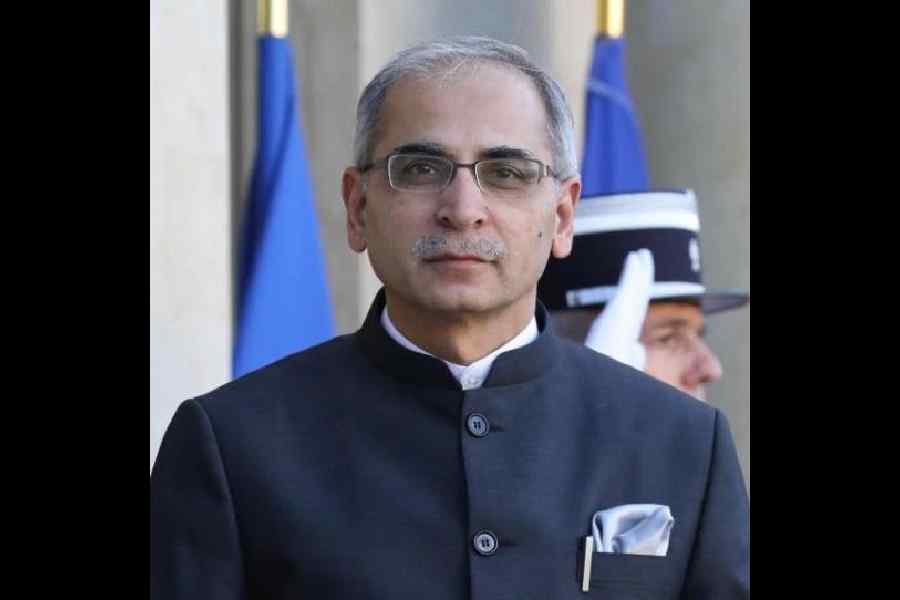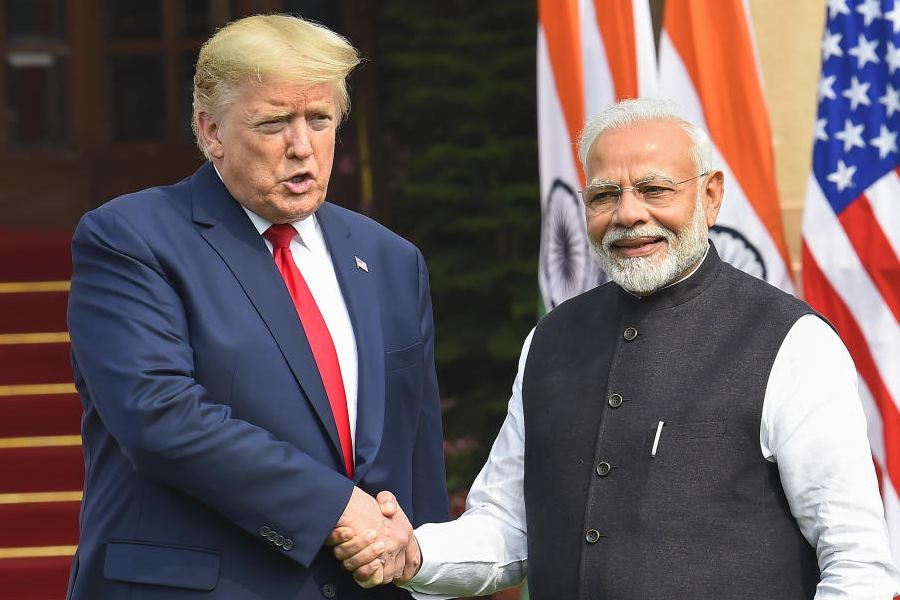Bhopal, Jan. 29: She has promised to “unleash” cows on him. He says his devotion to the animal stretches to even drinking its urine.
A battle bovine is raging in poll-bound Madhya Pradesh between the BJP’s Uma Bharti and Digvijay Singh, the state’s Congress chief minister.
The BJP’s star campaigner is accusing Singh of being anti-Hindu and sheltering those indulging in cow slaughter.
“The cows will drive out Digvijay wherever he goes,” Bharti said while announcing a statewide agitation following an incident of cow slaughter at Ganjbasoda.
Realising that such statements could turn Hindu voters away from the Congress, the chief minister said he was devoted to the animal and often consumed cow urine — apparently beneficial for both body and soul.
Singh also got a pat on the back from the state Congress with its chief, Radha Kishan Malviya, hailing him as the supreme saviour of cows. Malviya has advised voters to teach “Uma a lesson” and has even pointed at Singh’s move to set up a state-level commission to look after cows.
For the bovines, however, things are yet to improve. In capital Bhopal alone, hundreds of stray cows are picked up by municipal authorities and released once the weekly drive is over. There is hardly a roundabout in the city where aged cows are not spotted struggling with polythene bags or having rotten food unfit for consumption.
But staunch cow-lovers are not giving up. They are demanding a paradigm shift from the politics to economics of cows, saying it would go a long way in providing quality life to the animal, which is much worshipped but seldom cared.
According to S.C. Tripathi, a former director-general of the state police and a patron of the “Love for Cow Trust”, even dry cows can be economically viable in the field of sustainable agriculture, bio-energy, rural development, environmental purification, drought mitigation and food security.
Tripathi cited various examples such as benefits of organic manure that could reduce the dependence on and side effects of chemical fertiliser. Moreover, it would end the political controversy over fertiliser subsidy.
The benefit would be for both farmers and the government as they will be able to make environment-friendly compost minimising expenditure.
“The question should, therefore, be not how to feed the poor but how to develop sustainable farming methods,” he said.
There are others who feel that a bio-gas plant could generate electricity and a joint programme with the animal welfare board and local-run gaushalas can easily meet local energy requirements. The cow dung can drastically reduce dependence on wood for fuel which is causing deforestation, they say.
Politicians though are hardly bothered by such suggestions. Protection for cows is all that they want — and with it the mandate of voters — even as the old and feeble ones continue to struggle with polythene bags that are virtually choking them to death.











